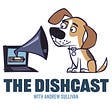Byron is a political journalist. He was a news producer for CNN in the early years, a reporter for The American Spectator, and the White House correspondent for National Review. He’s currently the chief political correspondent for Washington Examiner and a contributor to Fox News. His most recent book is the 2020 bestseller, Obsession: Inside the Washington Establishment’s Never-Ending War on Trump. We chewed over the recent political past and then got on to Trump, where things got stickier but still friendly.
For two clips of our convo — on Clinton Derangement Syndrome in the ‘90s, and Trump bungling his gains on immigration — pop over to our YouTube page.
Other topics: raised in Alabama; his dad a pioneer star in local TV news; the GOP takeover of the South; George Wallace; the Nation of Islam and AIDS; GOP fusionism in the Cold War; Mickey Kaus’ courage; David Brock’s war on the Clintons; Bill’s triangulation and the DLC; Vince Foster; Lewinsky and impeachment; Ken Starr; Iraq and WMD; covering Dubya for National Review; that mag marginalized since Trump; Birtherism and demonizing Obama; McCain and the market crash; Obamacare; the Santorum candidacy; Pat Buchanan; Trump vs Jeb on 9/11; Trump blowing up GOP orthodoxies; Hillary in 2016; Russiagate; pardoning all January 6-ers; Trump’s impeachments and McConnell; open borders under Biden; CHIPS and IRA; Trump hypocrisy on E-Verify; authoritarianism and self-deportation; Tom Homan; Bukele; the Alien Enemies Act; the SCOTUS standoff; judge shopping; DEI; Musk and DOGE; USAID and PEPFAR; Zelensky in the Oval; NATO; Chris Krebs; the tariff war; Trump’s yips; and the looming empty shelves.
Browse the Dishcast archive for an episode you might enjoy (the first 102 are free in their entirety — subscribe to get everything else). Coming up: Claire Lehmann on the woke right, David Graham on Project 2025, Jake Tapper and Alex Thompson on the Biden years, Robert Merry on President McKinley, Sam Tanenhaus on Bill Buckley, Walter Isaacson on Ben Franklin, and Paul Elie on his book The Last Supper: Art, Faith, Sex, and Controversy in the 1980s. Please send any guest recs, dissents, and other comments to dish@andrewsullivan.com.
From a long-time listener:
I’ve been reading you many years, since the blog days at The Atlantic, and I’m happy to be a subscriber here for a long time. This email isn’t a dissent or anything about a specific episode, but just a remark that I can’t not hear Arnold Schwarzenegger whenever you ask about a guest’s childhood at the beginning of every episode: “Who is your daddy, and what does he do?”
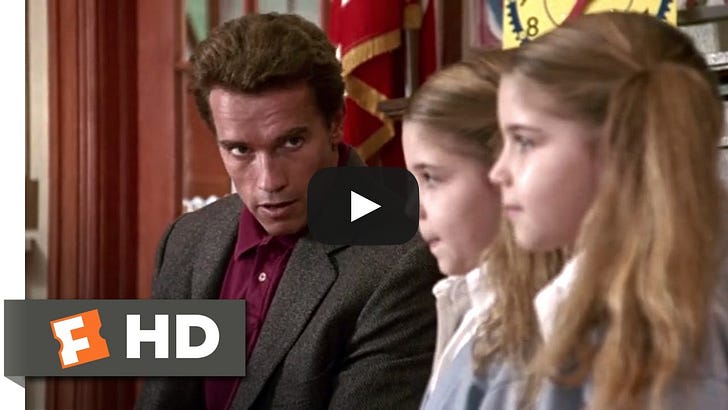
LOL, as the boomers still say.
Matt Ridley, one of the authors of Viral, continues his response to Zach Hensel from the main page:
The two changes to the text of our book were made based on new developments:
On the identification of another close relative of the SARS-CoV-2 virus in Laos, we wrote an entire new section at the top of the Paperback Update to the Epilogue (p315-318). We pointed out that Wuhan scientists had also been collecting virus samples in Laos across the border from Yunnan. When I called the virus hunters out on this and showed documented proof of virus samples from Laos collected as part of a collaboration between the Wuhan Institute of Virology (WIV) and the EcoHealth Alliance, the EcoHealth Alliance denied it and claimed “Any samples or results from Laos are based on WIV’s work, funded through other mechanisms.” In other words, the EcoHealth Alliance wanted to distance themselves from the virus hunting by the Wuhan Institute of Virology in Laos after they realized this lineage of SARS-like viruses could also be found in Laos.
We are not ruling out the presence of more SARS-CoV-2-like viruses in Southeast Asia. The Wuhan scientists had identified this lineage of viruses that SARS-CoV-2 comes from in the Mojiang mine in Yunnan, China. They said this novel lineage of SARS-like viruses was of great interest to them in a graduate thesis. They continued to hunt for these viruses not only in Yunnan but in several Southeast Asian countries, including Laos and Cambodia. Their Cambodian contact said they could not provide details on the number of trips and numbers of animals sampled. A 2021 paper about virus hunting in Laos by the WIV only described samples collected until 2016, meaning we still have no insight into the viruses discovered in the 3-4 years preceding the pandemic. This is all covered in our paperback update.
On the detection of lineage A on a glove at the Huanan Seafood Market in January 2020, we also added a section on this in the Paperback Update to the Epilogue (p326-329). We point out that Lineage A (“ancestral” to Lineage B, and that is why scientists call it Lineage A) had already been spreading among people with no link to the market. The single sample found at the market even had additional mutations, meaning that this variant was one that had emerged later in the outbreak. This means there is no evidence of an original source of Lineage A at the Huanan market. To top it off, new data released in 2024 showed that the known Covid-19 outbreak most likely resulted from a single introduction of the virus into humans and that the detected market outbreak (all cases were Lineage B) happened after the virus had already been circulating in Wuhan.
Be sure to check out Alina Chen’s June 2024 op-ed in the NYT, “Why the Pandemic Probably Started in a Lab, in 5 Key Points.”
Here’s a listener on last week’s episode:
Lee and Macedo presented very good arguments on the hypocrisy of Western leaders, failures in communication, the damage done to kids held out of school, the lack of intellectual diversity advising the presidents, the reasonable debate over gain-of-function research, etc.
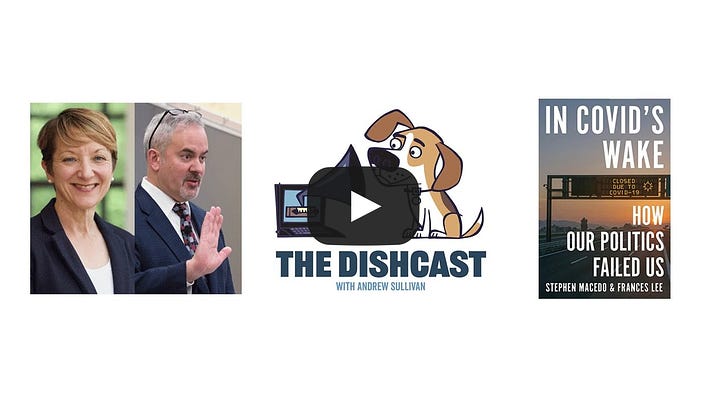
But with the Covid origins question, I’m afraid you and your guests are wandering into the dark corners of the internet with some company worth skepticism despite their credentials. And your guests conceded, “We’re not epidemiologists; we’re not scientists. We cite some excellent testimony by people that really are experts.”
For example, Lee and Macedo cite Prof. Richard Ebright’s congressional testimony. Take a moment, though, to read up on Ebright, who compared Tony Fauci to Pol Pot and accused Kristian Andersen of lying under oath with no evidence. That’s hardly the liberal dialog you called for in the episode. Francis Collins’ worst comments — which you cited in the episode — are rather tame compared to Ebright’s, and Collins had the decency to have a real discussion with you and to regret his hubris.
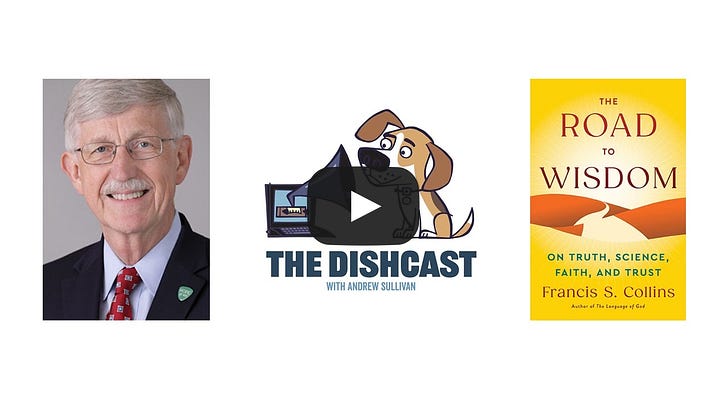
But we shouldn’t be talking about the people; we should be talking about the evidence. The lab leak evidence is purely circumstantial: EcoHealth staff connections, selected portions of email threads, rejected grant proposals for SARS research, etc. The few genetic arguments are circumstantial too — and now largely disproven. For example, the oft-discussed furin cleavage site, while not present in other SARS viruses, is present in related coronaviruses, meaning it occurs naturally in many related pathogens.
Consider what believing that circumstantial lab leak evidence would entail: you must believe that Fauci, Collins, Andersen, his co-authors, and many others knowingly altered data and/or conclusions for illicit reasons. You must believe they all later coordinated to lie under oath about it. You must believe they were dumb enough to do much of this on government email servers. You must believe that dozens of scientists on papers like this one must also be in on some portion of the conspiracy. And one must believe that all of them have stayed quiet for more than five years across the globe.
Conversely, the evidence for the zoonotic origin is quite strong. Some of your dissenters last week explained it well, but one of the authors I linked to above, Michael Worobey, did a good job summarizing some of it to NPR in much plainer English. In his summary, you’ll see actual samples of actual virus taken from actual wet market stalls and actual animals. He and his colleagues have cross-referenced those with known human cases through the early days of the pandemic. Far from circumstantial, these are the genetic and epidemiological equivalent of fingerprints and trails of blood.
Yes, many of our institutions have made many mistakes and have been subject to fashionable ideology. So I sympathize with the distrust you discussed with Collins. However, when has American science not made high-profile mistakes? We lobotomized people. We said homosexuality was a disorder. We accused sickle-cell patients of drug seeking because white doctors didn’t get it. We advocated for margarine, for fuck’s sake.
Science as an American institution, even at the height of our empire, has never fully lived up to the ideal. But its failures aren’t proof of anything other than what we already know: our institutions are comprised of flawed, biased people who make mistakes. Science is the long, slow process that corrects those errors over time. In the case of the origins of the virus, the exact scientific process you advocated for has been playing out, as Collins tried to explain, and the most tangible evidence points to one place — and it’s not the Wuhan Institute of Virology.
I rather like margarine myself. Another on Lee and Macedo:
I was struck by their assertions about the Great Barrington Declaration. They said it didn’t advocate for “letting it rip,” but instead called for “voluntary social distancing.” This is nonsense. Voluntary measures would have been indistinguishable from “letting it rip.” A large enough part of the population would not have participated, and the results would have been what we saw in, for instance, northern Italy and New York City: overwhelmed medical systems.
One more on that pod:
Comparing Sweden to the US or UK is laughable. The population sizes are radically different. Sweden has a much more robust healthcare system and lower population density. Pretending that Sweden’s outcomes could have been replicated in vastly different countries is misleading.
On the religious part of the Francis Collins pod, a listener writes:
Thank you for this! I was an atheist who came to have serious doubts, and though I’m not 100% sold on the entirety of Christianity, nor that of any organized religion (since I think history shows it’s been used for terrible purposes by those who have been power over the years), I have also come to believe it’s the truth. Not that you can take the Bible literally — it’s a flawed book both written and edited by flawed human beings — but I think it contains truth, and hearing this interview with Dr. Collins is one of the most compelling conversations I’ve heard on the topic, maybe ever.
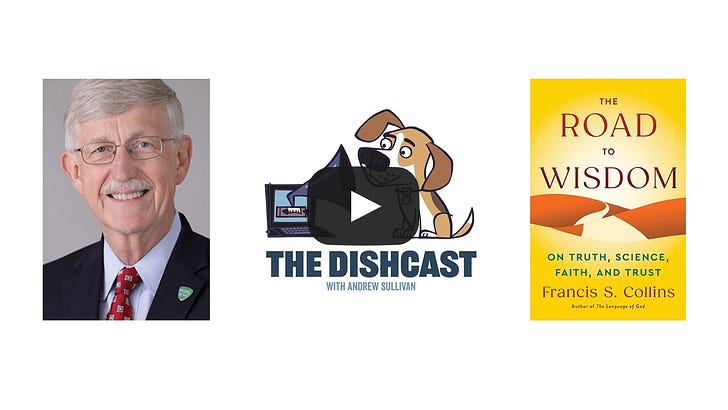
I had adopted the Christopher Hitchens view, but as I age, I’ve come to believe you have been spot on since the beginning. I just didn’t want to hear it from somebody born and raised into Christianity. I needed to hear it from somebody like me: somebody not born into it or raised with it, and somebody who was an atheist because it seemed to make the most sense at a time when I knew the least about life but was actively studying science.
Another is much closer to Hitch’s view:
Somewhere in the interview with Francis Collins, one of you suggested that it is hard for an atheist to state what they believe. I speak only for myself and I don’t pretend to represent all non-believers, but to me the idea of a world without God makes perfect sense — and adding God to it just makes it nonsensical and weird. All the things that believers like you cite as evidence that “there must be something larger” don’t suggest that to me at all...


